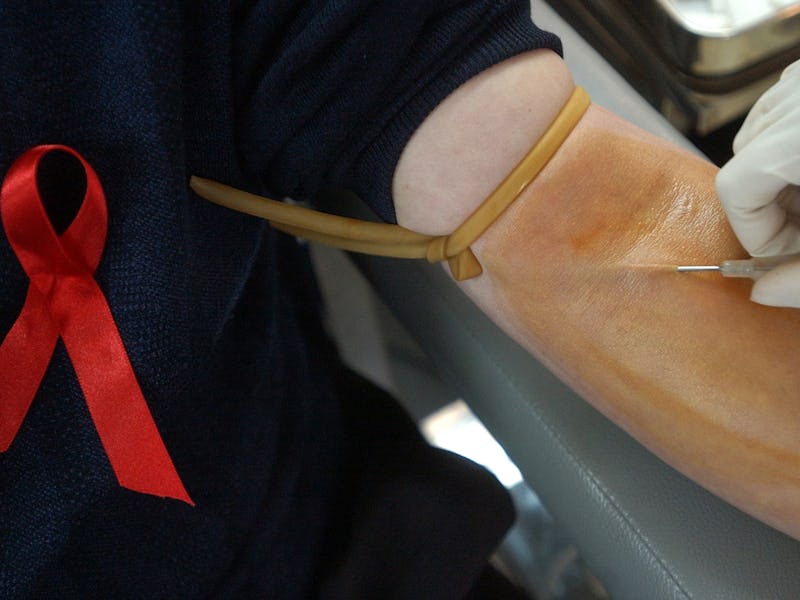FDA Overturns Lifetime Blood Donation Ban for Gay Men
But not if he's had sex with a man in the past year.

The Food & Drug Administration is receiving a lot of credit for eliminating its 30-year-old ban on permitting gay men to donate blood.
But its policy change probably doesn’t qualify as much of an accomplishment for gay rights. The FDA merely changed its qualifications to prohibit men who have had sex with other men within the past year from donating. So, two married gay men, men who are dating or sexually active but who take all basic protections against STDs still cannot give blood.
The change is a step in the right direction and, according to the FDA, reflects the “most current scientific evidence,” but it still amounts to little more than a prohibition based on sexual identity.
As anyone who has donated blood knows, you don’t have to pass a lie-detector test to be accepted, but you are required to fill out a chart that asks a series of personal questions, including whether you’ve ever used intravenous drugs, accepted money for sex, or (for a man) had sex with another man or (for a woman) had sex with a man who himself has had sex with a man.
The FDA has determined that these categories of people constitute groups at a high-risk for diseases that can be transmitted through blood, most notably HIV. So, along with those who visited Great Britain during the mad cow epidemic there in the 1990s, they should be banned from donating.
The likelihood that a blood transfusion in the United States will transmit HIV currently stands at 1 in 1.47 million — down from 1 in 2,500 at the height of the epidemic. The Red Cross estimates that U.S. doctors conduct about 30 million blood transfusions per year.
The decision to reduce the restrictions on gay and bisexual men donating blood reflects the improved ability to detect transmission of HIV within a year. Few people who contract HIV would still be unaware of it a year later, so allowing people who have not engaged in ‘high-risk’ behaviors within a year should be safe for the blood supply. And a comprehensive review of blood donations in Australia, which abandoned its blanket ban on gay men donating for a ‘12-month deferral,’ has shown no evidence of increased HIV transmissions.
Since we’re already asking such personal questions and relying to such a degree on personal honesty, it seems kind of outrageous that we still demand any kind of outright ban. For instance, gay men who practice safe sex or who had only a single sexual partner likely qualify as no higher risk than your average heterosexual sexually-active person.
The FDA does not seem to be moving on additional exceptions until other countries take the jump first, and they can analyze their evidence to ensure a safe supply. While it’s hard to dispute the merits of not pushing beyond the “most current scientific evidence,” it’s also hard to claim to be a leader if you’re not even trying.